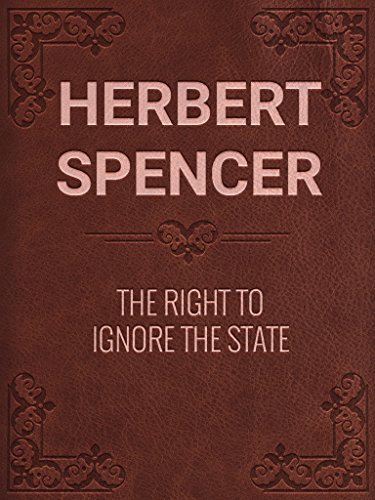What do you think?
Rate this book


11 pages, Kindle Edition
First published January 1, 1993
Let men learn that a legislature is not "our God upon earth," though, by the authority they ascribe to it and the things they expect from it, they would seem to think it is. Let them learn rather that it is an institution serving a purely temporal purpose, whose power, when not stolen, is, at best, borrowed.
Nay, indeed, have we not seen that government is essentially immoral? Is it not the offspring of evil, bearing about it all the marks of its parentage? Does it not exist because crime exists? Is it not strong, or, as we say, despotic, when crime is great? Is there not more liberty--that is, less government--as crime diminishes? And must not government cease when crime ceases, for very lack of objects on which to perform its function? Not only does magisterial power exist because of evil, but it exists by evil. Violence is employed to maintain it; and all violence involves criminality. Soldiers, policemen, and goalers; swords, batons, and fetters, -- are instruments for inflicting pain; and all inflection of pain is, in the abstract, wrong. The State employs evil weapons to subjugate evil, and is alike contaminated by the objects with which it deals and the means by which it works. Morality cannot recognize it; for morality, being simply a statement of perfect law, can give no countenance to anything growing out of, and living by, breaches of that law. Wherefore legislative authority can never be ethical -- must always be conventional merely.
By education, by free organization, by individual and associated resistance to political and economic tyranny, the Anarchist hopes to achieve his aim. The task may seem impossible to many, but it should be remembered that in science, in lierature, in art, the highest minds are with the Anarchists or imbued with distinct Anarchist tendencies. Even our bitterist opponents admit the beauty of our "dream," and reluctantly confess that it would be well for humanity if it were "possible." Anarchist Communist propaganda is the intelligent, organized, determined effort to realize the "dream," and to ensure that freedom and well-being for all shall be possible.